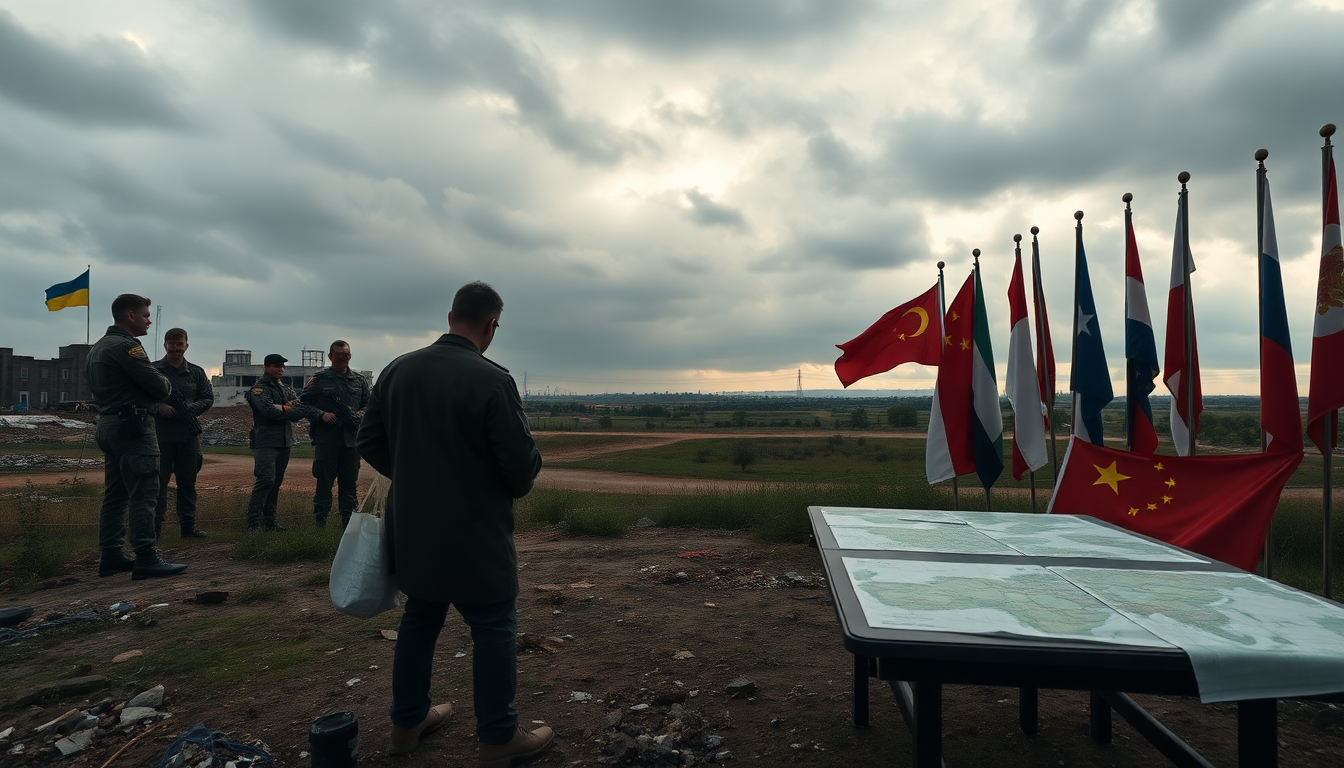Table of Contents
As the conflict between Ukraine and Russia rages on, China has found itself in the spotlight, prompting international leaders to take a closer look at its role. Ukrainian President Volodymyr Zelenskyy has been clear: he doesn’t see China as a viable security guarantor in any future peace talks with Russia. This statement follows discussions among U.S. and European leaders about the potential for a peacekeeping force in Ukraine. So, what does this mean for China’s involvement and the peace process? Let’s dive in.
China’s Ambiguous Position on the Ukraine War
Throughout this conflict, China has publicly called for a peaceful resolution. But actions often speak louder than words, right? Zelenskyy has pointed out that China hasn’t exactly stepped up to help stop the war, remarking, “First, China did not help us stop this war from the beginning.” This sentiment reflects a growing frustration among Ukrainian officials about China’s perceived inaction during the critical early days of the conflict.
Further complicating matters, Zelenskyy accused China of aiding Russia by opening its drone market, which has boosted Russia’s military capabilities. This situation raises eyebrows—while China promotes peace, its economic support for Russia raises serious questions about its neutrality. As a result, many Western leaders, including Zelenskyy, are viewing China with skepticism as they navigate this intricate web of international diplomacy.
International Security Guarantees and the Role of Key Players
In more recent statements, Zelenskyy underscored the importance of international security guarantees after the conflict. He insists that any country involved must have actively supported Ukraine since the invasion began in 2022. Why does this matter? It’s essential for Ukraine to establish a solid mechanism to prevent any future aggression from Russia. Zelenskyy’s comments suggest that countries like China, which have shown support for Russia, won’t make the cut in this framework.
The implications of these statements are significant, as they help delineate the potential landscape of peace negotiations. Zelenskyy clearly favors allies who have consistently backed Ukraine, particularly from the West. This narrowing of potential guarantors illustrates a broader strategy to ensure that any peace agreement is robust and backed by countries committed to upholding Ukraine’s sovereignty and territorial integrity.
Accusations and Denials: The Back-and-Forth Between Ukraine and China
The relationship between Ukraine and China is further muddied by a series of accusations. In April, Zelenskyy directly accused China of supplying weapons to Russia, a bold claim that marked a notable moment in their diplomatic relations. The Chinese Foreign Ministry quickly shot back, labeling these accusations as “groundless” and a form of “political manipulation.” Such exchanges really highlight the fragile trust between the two nations, especially considering the U.S. has accused China of providing crucial military components to Russia.
Adding to the complexity is the historical context of the Russia-China partnership. Before the invasion, the camaraderie between Vladimir Putin and Xi Jinping was publicly reinforced, culminating in what they called a “no limits partnership.” This backdrop raises concerns for Ukraine and its allies about how much influence China has over Russia and what that could mean for resolving the conflict.
Conclusion: Navigating the Complexities of International Diplomacy
As the situation in Ukraine continues to evolve, the dynamics between Ukraine, Russia, and China will be pivotal. Zelenskyy’s remarks clearly outline the challenges ahead in establishing a sustainable peace framework, particularly with a key player like China in such a contentious position. The future of the Ukraine conflict will likely hinge on how these nations’ interests interplay, and the international community must keep a close eye on these developments to encourage a peaceful resolution. After all, in a world so interconnected, can we really afford to look away?


